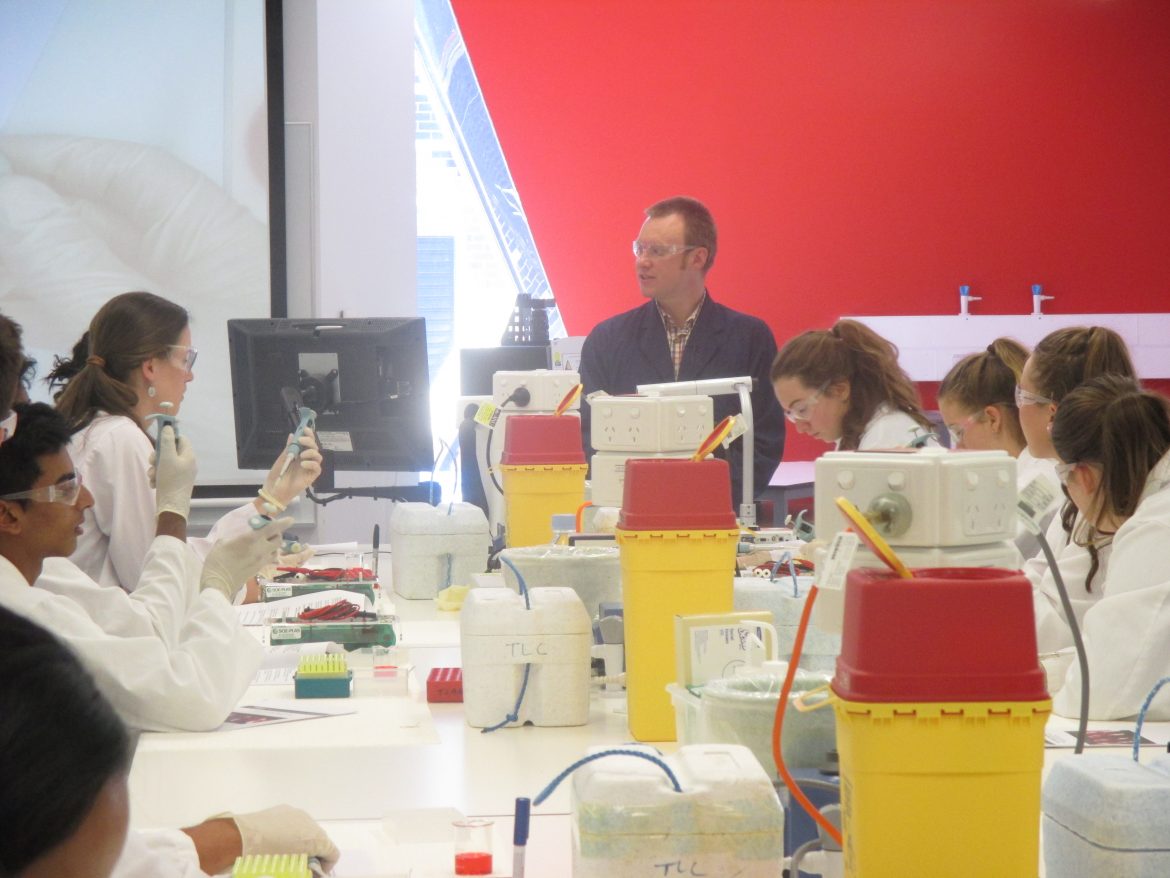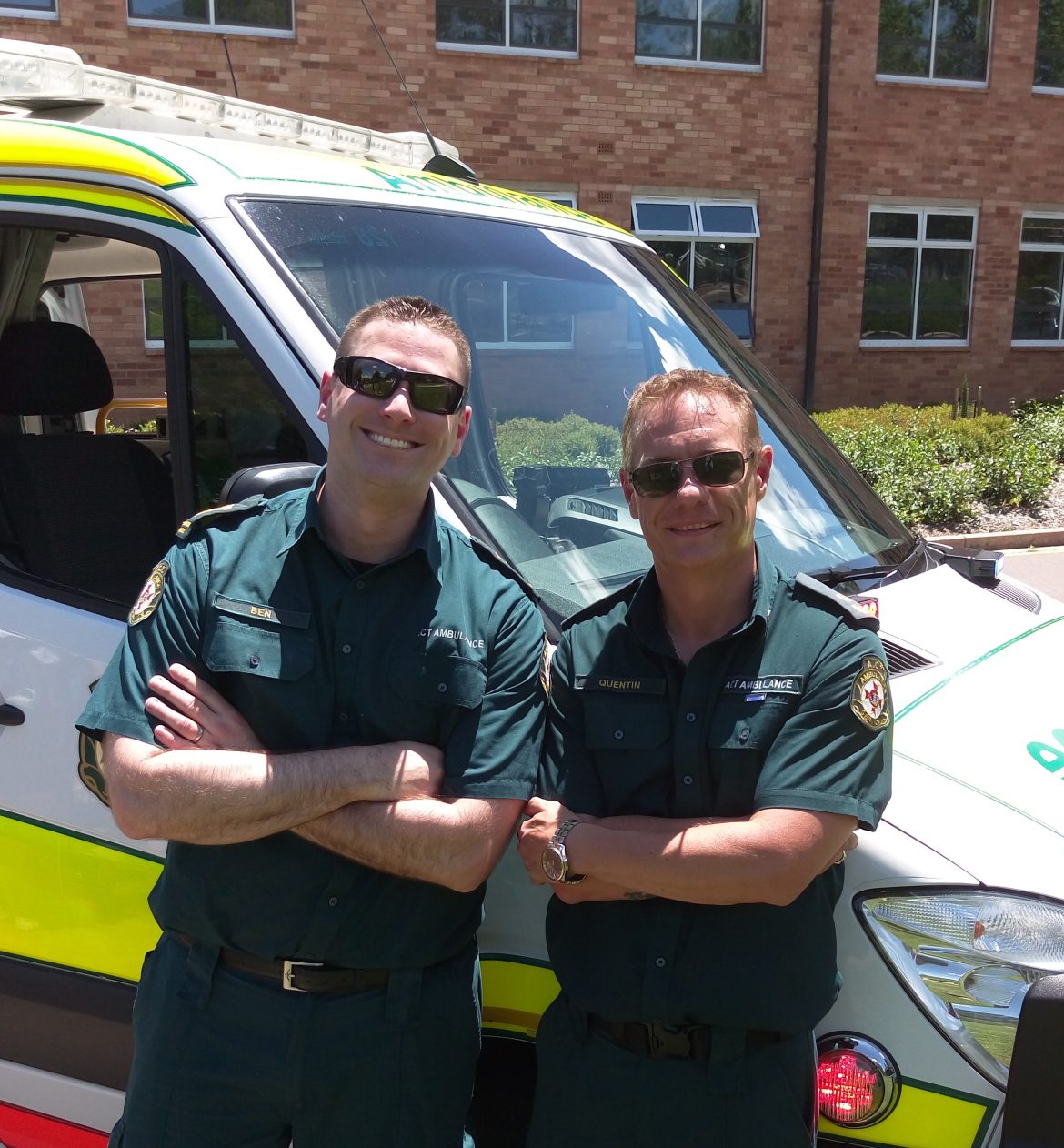“Talking to your peers and lecturers can really help you get a foot in the door for undergraduate research.”
NYSF 2017 students in the Session A health and medical sciences interest groups had an eventful series of lab visits last week.
On Thursday, the students participated in a hands-on laboratory demonstration run by Dr Andras Keszei, the first year coordinator for biology at the Australian National University.

Dr Andras Keszei speaking to NYSF 2017 Session A students
Andras has been involved with the NYSF for the past five years. He thinks that the motivation and enthusiasm of the NYSF student groups is remarkable, and it’s these qualities that fuel his passion to host lab visits for the NYSF students.
The students were introduced to biology equipment used in ANU’s first year biology labs and given a general preparation for laboratory assessment at university.
Andras then presented an interactive activity focused on genetics, in particular dominant and recessive genes. Genetics, Andras believes, is one of the fields that will result in some of the most important biological research in the future.
“We can sequence a genome, but we can’t really fully understand all of the data yet.”
Andras’ advice for the 2017 NYSF students who are considering STEM degrees is to not underestimate just how important it is to talk to people.
“You can sit in a room, read books, and get smart. But you really need to talk to people. It’s really understated just how important it is to talk to people. Talking to your peers and lecturers can really help you get a foot in the door for undergraduate research.”
You can find out more about Dr Andras Keszei and his research here.
On Friday, the students talked to five postgraduate ANU medicine students about the process of becoming a medicine graduate. The postgraduate students identified the hard work and determination that is required, and also praised the ANU’s medicine program, stating that the program was like being a member of a large family.
Afterwards, two representatives from the ACT Ambulance Service provided a brief overview of what it’s like to be a paramedic. Ben is an intensive care paramedic while Quentin teaches intensive care paramedics in his role as a clinical educator. Being a paramedic is certainly no easy job, Ben emphasised, the alternating 10 hour day shifts and 14 hour night shifts makes paramedicine a challenging career.
Despite the demanding hours, Ben and Quentin love their jobs and thrive on the challenges it presents.

Ben and Quentin pictured with their ACT ambulance
The lab visit was concluded with a tour of a standard ACT ambulance, including their lifelike practice mannequin which can hear, speak, and even has a simulated pulse.
By Daniel Lawson, NYSF 2017 Session A Communications Intern and NYSF 2015 Alumnus.